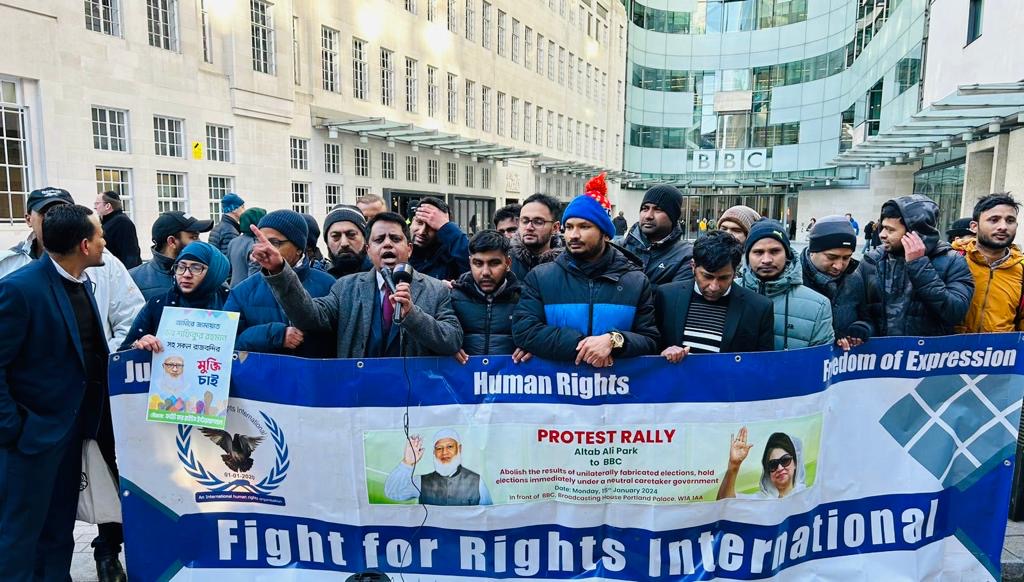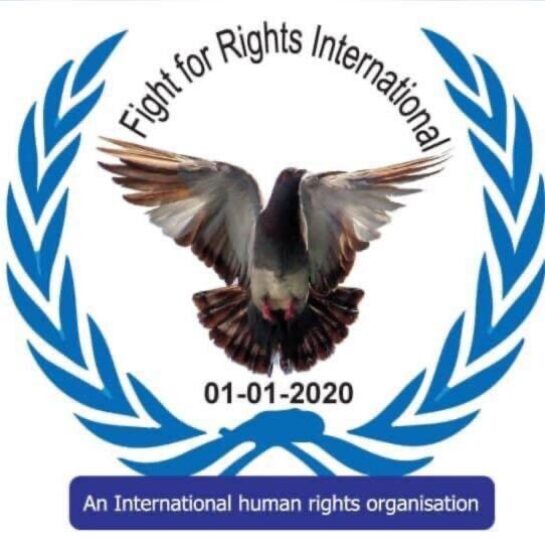In a robust demonstration staged outside the BBC headquarters in London, speakers at the protest rally, organized by the international human rights organization Fight for Rights International (FRI), passionately advocated for the release of incarcerated political figures, including BNP Chairperson Begum Khaleda Zia and Jamaat-e-Islami Amir Dr. Shafiqur Rahman. The core demand echoed was the necessity to restore Bangladesh’s sovereignty from Delhi to Dhaka, emphasizing a resolute fight against what was perceived as Delhi’s supremacy.

This fervent message reverberated during the protest rally on January 15, 2024, as demonstrators passionately called for the annulment of Bangladesh’s purported one-sided election. They fervently pressed for a new election facilitated by a neutral caretaker government, while concurrently demanding the release of political leaders currently imprisoned.
Prominent figures present at the event included Aliullah Noman, the executive secretary of Amardesh, who assumed the role of chief guest. The rally, steered under the leadership of Fight for Rights International President Md Raihan Uddin and Secretary Burhan Uddin Chowdhury, featured notable special guests like Muhammad Amin Uddin, former Central Planning Secretary of Bangladesh Islami Chhatrashibir; Abdullah Al Munim, former Sylhet District President; Aminul Islam Mukul, a journalist; and Md. Ahiduzzaman, editor of Newslife24. This diverse assembly of speakers and guests underscored a broad coalition advocating for transformative change and justice.
Simultaneously, protesters raised their voices against the 14-year governance of the Awami Government, decrying a period marked by allegations of cruel governance, extrajudicial killings, abductions, and the systematic suppression of opposition leaders. Central to their discontent were claims of three corrupted elections orchestrated by the government, marginalizing the main opposition party.
Expressing weariness with the current administration, protesters contended that the outward semblance of freedom and independence in Bangladesh conceals a deeper absence of true independence. They argued that citizens feel constrained in freely expressing their feelings and political opinions under the prevailing government, casting shadows over the state of democratic freedoms in the nation. This demonstration highlighted the mounting discontent within segments of the population, underscoring concerns about the perceived erosion of democratic values and the imperative for redress in the political landscape.
